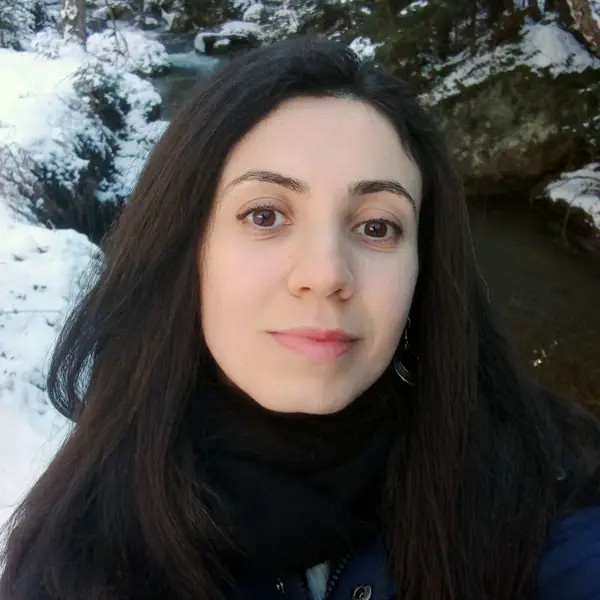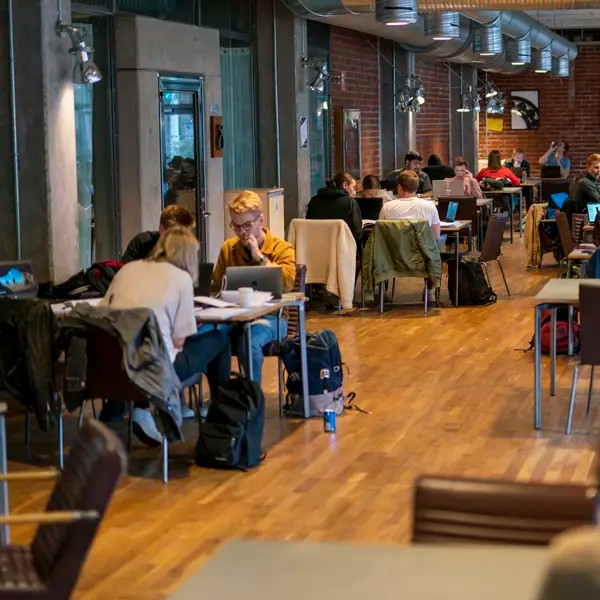
Learn how to problem-solve and optimise product design within a broad spectrum of different engineering applications. This master’s programme will give you an internationally competitive education in modelling, computational and experimental techniques in applied mechanics.
You will train how to solve solid, structural, and fluid mechanics problems in a broad spectrum of different application areas, gaining core competencies and preparing to become a key player for both large and small enterprises. You will also gain the skills required to work with the mechanical design of sustainable and competitive products — all while considering aspects like reliability, robustness, weight, and energy efficiency.
Overview
- Educational areaMechanical and Industrial design engineering
- DegreeMaster of Science, MSc
- LanguageEnglish
- Place of studyJohanneberg
- Duration2 Years
- Rate of studyFull-time, 100%
- Instructional timeDaytime
- Application period
Mid-October – Mid-January
ⓘ Application period for Chalmers bachelor’s students starts in April
Important dates
- Application opens
- Application closes
Applied mechanics master's programme at Chalmers
The importance of the programme is manifested by the role that simulation tools play in engineering practice today. The development of computers and algorithms will continue to increase the possibilities and accuracy of simulations as part of designing competitive, reliable and sustainable products.
The master’s programme in Applied mechanics at Chalmers will train you to solve solid, structural and fluid mechanics problems in a broad spectrum of different application areas. You will gain core competencies for becoming a key player for both large and small enterprises working with the mechanical design of sustainable and competitive products while considering aspects like reliability, robustness, weight as well as energy efficiency.
The teaching in the programme mainly consists of lectures, tutorial classes, computer classes and physical experiments. But the interconnection and collaboration with industry are significant which is manifested by guest lectures, study visits as well as tasks in the project course. Most of our students carry out their master thesis projects in the industry, but they can also be carried out at research groups at Chalmers or internationally.
This is the programme to get experience on creating appropriate simulation models to solve real-world problems while working in a team environment

Topics covered
The fundamental subjects of the programme are solid mechanics, fluid dynamics and structural dynamics. The courses handle topics such as mathematical modelling in mechanics: simulation techniques such as the finite element method (FEM) and computational fluid dynamics (CFD); and experimental techniques in mechanics.
The main idea of the programme is to integrate modelling (formulation of mathematical models based on fundamental laws and experimental knowledge), algorithmic formulations, implementations (in for example Matlab and/or Python), analyses of simulation results (from own code and/or commercial software) and experimental results. The numerical simulation tools are then often used in the courses to increase the understanding of the model itself and what it predicts for various industrial applications.
Career
Professionals with modern education in applied mechanics play an important role in many industrial and engineering activities. Although the focus often can revolve around solving mechanical engineering problems, the programme's width will provide you with a solid background within other engineering disciplines as well.
The most common first job for graduates is as a design engineer using simulations and/or experiments. Later in their career they can for example become managers or technical advisors in the private or public sector, or teachers in science and engineering at different levels.
Graduates from this master's programme are found in both large and small enterprises working with solid and/or fluid mechanics problems in the design of sustainable and competitive products. Typically, job opportunities can be found, in Sweden and internationally, in research and development within industrial companies and research institutes or with consulting firms. Examples of companies where you can find Applied mechanics graduates are: AFRY, Alten, ANSYS, AVL, Bombardier Transportation, CEVT, Fraunhofer, FS Dynamics, GKN, Nevs, Saab, Sandvik, Scania, Siemens, SKF, Trafikverket, RISE Research Institute, Semcon, Vattenfall, Vetec, Volkswagen, Volvo Cars and Volvo Group.
It is also possible to envision a career outside the traditional engineering field, where the acquired skills to systematically understand and solve problems are highly appreciated. The programme will also give you a great start for continued studies towards a PhD in applied mechanics and other related areas.
Research
The research at the department of Applied mechanics is in many cases supported by industrial partners, which generate a number of industrial master thesis projects every year. Moreover, the teachers in the programme are conducting research in Chalmers’ areas of advance: energy, health engineering, materials science, production and transport.
The courses in the programme are given by three divisions at Chalmers: dynamics, fluid dynamics and material and computational mechanics. In these divisions, there is a long tradition of teaching and research in the applied mechanics field. The research conducted at the divisions is both of general character as well as directed towards a wide range of industrial partners and their applications. This affects the contents of the programme and ensures that you will gain relevant and state-of-the-art engineering knowledge.
PhD students in these divisions follow the graduate schools Solid and structural mechanics or Thermo and fluid dynamics which can be viewed as continuations of the Applied mechanics master's programme.
Find out more about research in Industrial and materials science
Requirements

How to apply - From application to admission
This is a step-by-step guide on how to apply for a Master's programme at Chalmers University of Technology.
Questions about the application

Phone hours
10:00–11:00 (weekdays)
Specific programme questions
- Professor, Fluid Dynamics, Mechanics and Maritime Sciences
